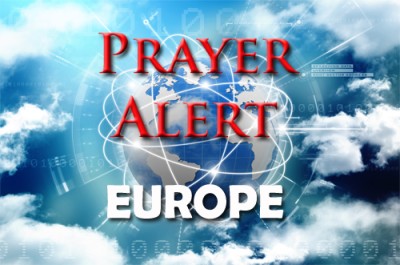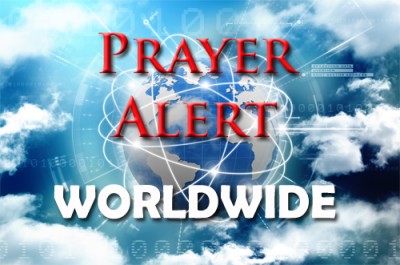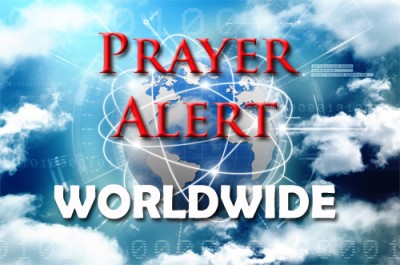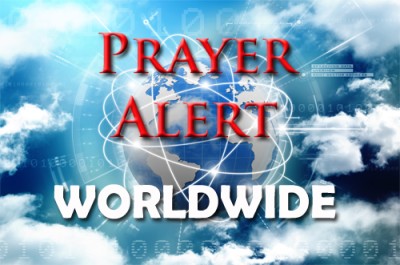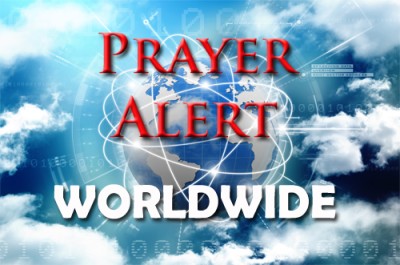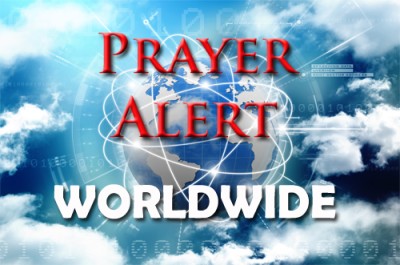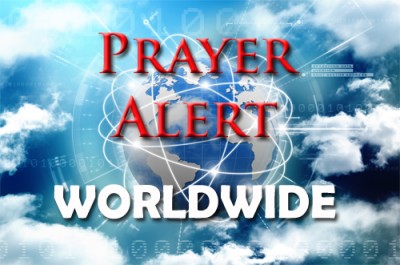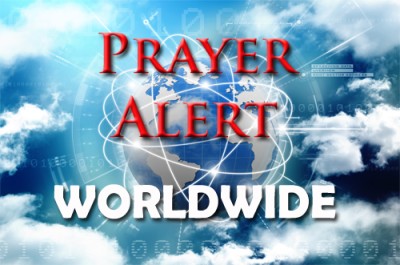Serbia: 13-year-old kills nine
04 May 2023There is an awful silence hanging over the steep hill on which Vladislav Ribnikar elementary school sits. On 3 May, a 13-year-old entered the school, armed with two guns, and shot dead eight fellow students and a security guard. Six other children remain in hospital. The school is at the heart of this central Belgrade community, where streams of mourners are arriving, bearing flowers and soft toys. 24 hours after the worst school shooting in Serbian history, pupils from the next-door college stand along the street to stand in silence and remember those killed. ‘I am crushed’, says final-year school student Alex Oborina, 19, beside some of the handwritten notes left on the pavement. ‘We have failed as a society because this is something that should not happen to a 13-year-old. He should not be grabbing a gun and going into his school and shooting his friends.’ Alex seems to echo the sentiment everyone here feels. ‘This is probably the worst thing that has ever happened in my life. We need to use this as a stepping stone to rebuild.’
Violence against Christian women and girls continues to rise everywhere. Christian women are abducted and used as sex slaves. The 'honour' culture is used to shame and stigmatise victims of sexual or physical abuse, so victims are silent. Men attack with impunity because victims keep quiet for fear of dishonour to their family or community, so wrongdoing often goes punished. This, in turn, makes women and girls increasingly vulnerable to psychological violence. Rape victims are often viewed as sexually impure, making them vulnerable to rejection and limiting their future prospects. In many cultures, women do not hold the same value as men. This undergirds much of the persecution faced by our sisters. And in many cases, being a Christian means they are regarded as having even less worth. Open Doors’ vision is that every woman who is persecuted for her faith and gender is seen, valued, and empowered to reach her God-given potential.
Israel: ‘One Million March’
04 May 2023Tens of thousands of Israelis gathered in Jerusalem in a show of support for the controversial judicial overhaul plan by Benjamin Netanyahu’s government. Local media estimated that the event, which organisers had dubbed ‘The One Million March’, drew only about 80,000 people. It was sponsored by the Premier’s conservative Likud Party and its far-right coalition ally Otzma Yehudit faction. Among many who chanted ‘The people want judicial reform’ was justice minister Yariv Levin, who spearheaded the push for the overhaul. The nation has been gripped by unprecedented nationwide demonstrations against the deeply divisive plan since its unveiling 16 weeks ago. Mr Levin told demonstrators that ‘more and more people understand the need for the legislation. We are in an unusual situation. There is an atmosphere where people try to paint a picture of the elected government not representing the people. Today we are protesting to show that it does.’
Micronesia: tug of war
04 May 2023The Pacific nation of Micronesia, with 100,000 people in 607 islands, is currently caught in a political tug of war. Its location makes it a key vantage point for foreign policy. Beijing hopes to gain influence in an area of strategic importance. Yet more important than its earthly political state is the eternal state of Micronesian souls. They largely identify as Christian but cultural influences appear in their religious practice, including animism, magic, narcotics, materialism, and ancestor worship. Nominalism is high among the protestant churches and there is much cronyism among the leadership. One estimate states that 99% of the pastors in Micronesia were appointed with no theological training. The Micronesian church has many challenges, including consumerism influences from America, high delinquency and suicide among the youth, Mormon missionary activity, and the low availability of Bible translations.
Sudan: prayer needs
04 May 2023Sudanese passports are locked inside European embassies. Spain's foreign ministry urged people to obtain travel documents from the Sudanese authorities. Mohamed was waiting for his visa for a Spanish holiday when war erupted. He phoned the Spanish embassy to retrieve his passport. The receptionist asked, ‘Are you Sudanese or Spanish?' He said he was Sudanese, she immediately hung up. Mr Badawi works for a French company. His passport was at the French embassy and they refused to return it. There are many more trapped. 15.8 million people already needed humanitarian assistance before the conflict. Now the situation is dire. Water, food, fuel, and medical supplies are scarce. The UN and partners are working to reboot the humanitarian response. Also the toll on children and young people’s mental health is profound. Additionally, the cost of transportation out of the worst-hit areas has risen exponentially, leaving the most vulnerable unable to move to safer areas.
Afghanistan: nothing can be done as babies die
04 May 2023Baby Tayabullah is motionless. His mother moves the oxygen pipe and puts a finger under his nose to check his breathing. She realises he is fading and cries. The hospital's ventilators are broken and small oxygen masks are not available, so mothers hold oxygen tubes near their babies' noses, trying to do what staff or medical equipment should be doing. About 167 Afghan children die daily from preventable diseases that could be cured with the right medication. If you go inside paediatric wards you will wonder if that estimate is too low. Rooms full of sick children, two or more in each bed, ravaged by pneumonia. Just two nurses looking after sixty children, in a room full of babies in a serious condition. A nurse said, ‘We don't have equipment or enough staff, which child should we check first? We can do nothing but watch babies die.’ When the Taliban seized power, foreign funding stopped and hospitals failed.
USA: migrant surge expected
04 May 2023An additional 1,500 active-duty troops will join the 2,500 National Guards on the US-Mexico border in anticipation of an influx of migrants when the Covid-era restrictions expire on 11 May. Their assistance will free up resources so that US Customs and Border Protection can operate freely while soldiers fill gaps in ground-based detection, monitoring, data entry, and warehouse support. They will not be doing any law enforcement. Many believe further militarisation of the border is unacceptable in the middle of a humanitarian crisis in the Western Hemisphere. Deploying military personnel signals that migrants are a threat. Nothing could be further from the truth. More encounters at the Mexico border are expected as smugglers take advantage of the changes. They are already hard at work spreading disinformation that the border will be open, placing strains on the entire system. There were 7,000 daily encounters on the US southern border recently. Numbers are expected to rise in the coming weeks.
Peru: stop press! ?
04 May 2023Criminals in Peru have wrong-footed themselves during a robbery at a shoe store. Three people broke into a shop in Huancayo and made off with more than 200 trainers - but they were all for the right foot. The lame attempt at a lucrative robbery was captured by security cameras. Offloading 200 right shoes may not be an easy task.
